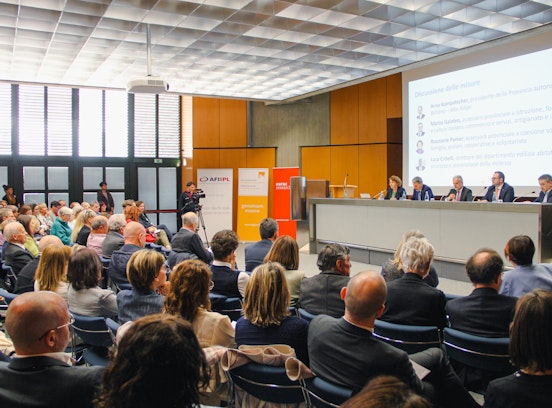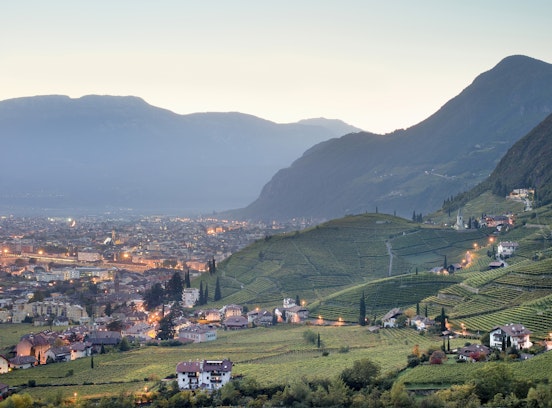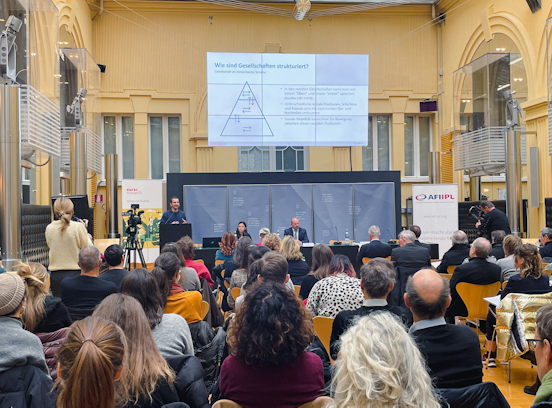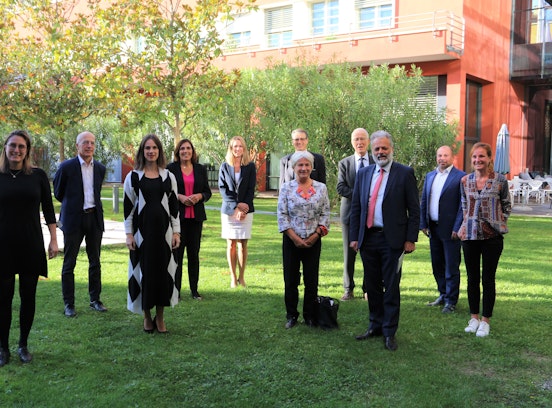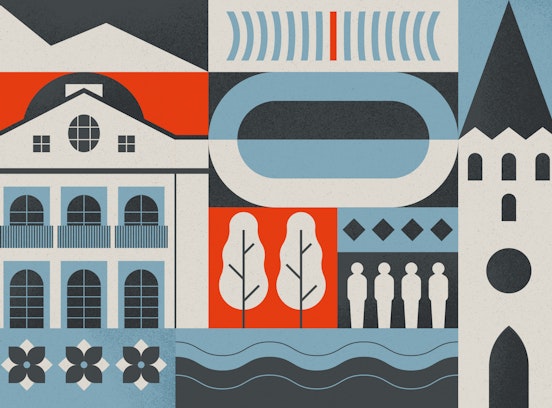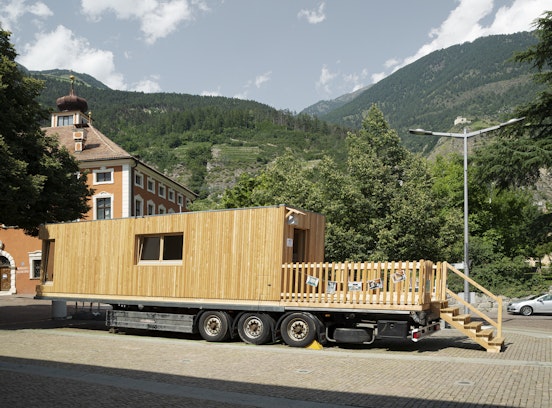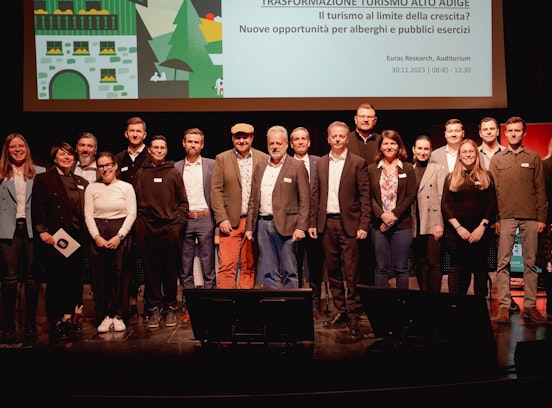Center for Advanced Studies - News & Events - Global Tourism Futures: Destination Heritage or Destination Future?
Global Tourism Futures: Destination Heritage or Destination Future?
Different Dynamics in Asia, Europe and the Gulf Region
- Deutsch
- English
- Italiano
- Date: 22-23.08.2024
- Place: Eurac Research with a Fireside Talk in the South Tyrolean Dolomites
- Typology: Workshop: GTF Europe Dolomites
By hosting the international workshop “Global Tourism Futures,” South Tyrol is establishing itself as a platform for an in-depth examination of global tourism development with a special focus on future studies. Various global challenges, such as climate change, technological advancements, geopolitical shifts, and demographic changes, are profoundly impacting our society. The tourism industry, being highly globalized, is inherently tied to these issues and needs to find innovative solutions to address them. Given the contested nature of these solutions and the different dominant paradigms across world regions, Global Tourism Futures aims to bring together experts from Asia, Europe, and the Gulf region to discuss their respective visions for tourism development.
Global Tourism Futures will convene experts, industry leaders, and researchers to engage in rigorous, cross-continental, and interdisciplinary dialogues. By fostering an inclusive and collaborative environment, the workshop aims to stimulate innovation and integrate diverse perspectives on the future trajectory of global tourism.
The workshop centers on the following thesis:
While many historic destinations in Europe continue to grow in popularity, they are forced to cope with overcrowding and all its associated negative social and environmental impacts. Consequently, these destinations mainly seem to focus on managing the influx of visitors, establishing visitor guidance systems, and trying to address the challenges of overtourism. In contrast, the emerging destinations in Asia and the Gulf region are developing entirely new attractions and construction projects from scratch with the ambition of incorporating critical issues related to the planet’s future from the outset. Tourism development in these regions often appears to be more closely connected to a broader vision of the future, challenging questions related to political and economic governance, and fostering a new perspective on the role of leisure and tourism in societies with a high interest in sustainability.
- How can a holistic approach to sustainability be embedded into global tourism development and what can the different world regions learn from one another?
- To what extent does global tourism address issues of social, ecological, and economic sustainability, or questions of inequality?
- How can a balance between destination heritage and destination future be achieved?
- What will global tourism look like?
Interactive panels and discussions will provide participants with the opportunity to delve into specific topics and actively share their ideas and strategies.
- Climate change is having a profound impact on the tourism industry.
- Artificial intelligence and digitalization are causing a disruption in tourism that is comparable to the groundbreaking introduction of the internet.
- The international tourism landscape is undergoing a shift.
- Tourism customer structures are changing.
- Health, nature, sport, and culture will be central themes in the future as determining factors for the quality of life and experience.
Focal points
It is forcing the sector to realign or even completely rethink existing business models. The rising environmental impact, whether due to natural disasters or the decline in natural resources, makes a reorientation of the tourism industry unavoidable. Sustainability and adaptability are the key concepts for meeting these challenges. Moreover, the question arises as to what extent tourism can take on a role as an "agent of change" in the context of the discussion on the preservation of biodiversity and climate protection.
The personalization of travel experiences, new booking systems and innovative applications are not only influencing the way in which travel is planned and carried out but are also fundamentally changing the interaction between travel providers and consumers.
Western providers and consumers are losing their predominant role. The Middle East and Asia are emerging as strong players and are openly competing with established Western forms of tourism. This is leading to the emergence of a variety of business models and new competitive structures that are having a lasting impact on the industry.
Young people and families are no longer the dominant group. The needs and preferences of travelers are shifting, and the tourism industry must adapt to meet the diverse demands of different age groups and socio-cultural backgrounds. More than ever before, travel is becoming a global lifestyle with increasing interdependencies and overlaps between living spaces and destinations, between experiences and adventures in the interplay of virtuality and reality, and between leisure and working time.
Dealing with these issues stimulates new forms of tourism that would not be possible without new forms of mobility.
In the face of these changes, the future of global tourism will depend on the sector's ability to adapt to new environmental and technological realities while meeting changing demographic and socio-cultural demands. Only a holistic approach can set the tourism industry on a sustainable and viable path for the future.
- Christin Pfeiffer, Senior Consultant, Social and Human Sciences Sector, UNESCO
- Markku Wilenius, UNESCO Chair in Learning Society and Futures of Education, Finland Futures Research Centre, Turku-Helsinki
- Michael Shamiyeh, UNESCO Chair for Anticipatory Techniques and Future Design, Linz
- Harald Pechlaner, Head of the Center for Advanced Studies, Eurac Research (Moderation)
- Rodolfo Baggio, Professor at Bocconi University, Milan
- Christian Ubbiali, Lecturer in the International Program in Sports Management (CIES FIFA), Sorbonne University, Abu Dhabi
- Alessandro Dassi, Travel & Hospitality Advisor, former executive at Thomas Cook and Fosun Group
- Rebecca Armstrong, Sustainable Tourism Specialist at The Travel Foundation, Bristol
- Mara Nemela, Director of UNESCO Dolomites Foundation
- Greti Ladurner, President of FieraMesse Bolzano-Bozen
- Gerhard Vanzi, Founder and CEO HERO Dolomites
Innovations in Heritage Utilization and Sustainable Development of Tourism Destinations: Cases from China
Taylor Zhang, Professor, Fudan University, ShanghaiBalancing Authenticity and Modernity: The Example of Omani Tourism
Ali Said Akaak, Lecturer, University of Technology and Applied Sciences, OmanClimate Change and Its Impacts on the Tourism Industry: Experience from the Hindu Kush Himalaya (online)
Anu Kumari Lama, Tourism Specialist, International Centre for Integrated Mountain Development ICIMOD, KathmanduPerspectives on Heritage and Innovation in Australia
Michael Volgger, Professor, Faculty of Business and Law, Curtin University, Perth- Harald Pechlaner, Head of the Center for Advanced Studies, Eurac Research
- Wolfgang Georg Arlt, Head of China Outbound Tourism Research Institute (COTRI)
- Anna Scuttari, Associate Professor, Università IULM, Milan
- Kurt Luger, UNESCO Chair Cultural Heritage and Tourism, University of Salzburg
- Christin Pfeiffer, Senior Consultant, Social and Human Sciences Sector, UNESCO
- Michael Volgger, Professor, Faculty of Business and Law, Curtin University, Perth
Programme
DAY 1 | 22.08.2024 | Is the Future Tomorrow or Today?
Opening
Roland Psenner, President Eurac Research
Introduction
Harald Pechlaner, Head of the Center for Advanced Studies, Eurac Research
Wolfgang Georg Arlt, Head of China Outbound Tourism Research Institute (COTRI)
(Re-)Globalization and Futures
Roland Benedikter, UNESCO Chair in Interdisciplinary Anticipation and Global-Local Transformation, Eurac Research
Panel discussion
Coffee break
Transformation of Hospitality and Tourism in View of Global Changes (online)
Kaye Chon, Dean and Chair Professor, School of Hotel and Tourism Management, The Hong Kong Polytechnic University, Hong Kong
Sustainability and Beyond
Dirk Glaesser, Director, Sustainable Development of Tourism, World Tourism Organization (UN Tourism), Madrid
Climate Change and Its Impact on the Tourism Industry - Five Milestones to Future-Proof Tourism
Rebecca Armstrong, Sustainable Tourism Specialist at The Travel Foundation, Bristol
Light lunch
Five Things the Global Tourism Industry Needs to Understand About Airports
David Feldman, Managing Partner at Exambela Consulting, Lausanne
Incorporating Future Issues into Tourism Development
Short presentations and moderated discussion
Departure from Eurac Research to Selva-Wolkenstein
Fireside Talk
Unesco Heritage Sites and Its Challenges Regarding Visitor Management
Kurt Luger, UNESCO Chair Cultural Heritage and Tourism, University of Salzburg
Panel discussion:
Dinner
Departure to Bolzano-Bozen
DAY 2 | 23.08.2024 | No Future without Heritage?
Future Paths for Cultural Heritage
Creating Heritage Alliances for a Balanced Sustainable Development
Elena Borin, Professor in Business Administration, Pegaso Digital University, Italy
Case studies from different world regions: Presentations and moderated discussion
Coffee break
Destination Heritage or Destination Future? (German speaking panel)
End of the workshop and light lunch
City tour with historian Hannes Obermair
Download the programme as a PDF file.
Registration
Participation is free of charge and open to everyone.
For organizational reasons, we kindly ask you to register. Please note: Attendance at the evening event is restricted to registered participants only.
Speaker
Roland Psenner
President, Eurac Research
Harald Pechlaner
Head of the Center for Advanced Studies, Eurac Research
Wolfgang Georg Arlt
Head of China Outbound Tourism Research Institute (COTRI)
Roland Benedikter
UNESCO Chair in Interdisciplinary Anticipation and Global-Local Transformation, Eurac Research
Christin Pfeiffer
Senior Consultant, Social and Human Sciences Sector, UNESCO
Markku Wilenius
UNESCO Chair in Learning Society and Futures of Education, Finland Futures Research Centre, Turku-Helsinki
Michael Shamiyeh
UNESCO Chair for Anticipatory Techniques and Future Design, Linz
Kaye Chon
Dean and Chair Professor, School of Hotel and Tourism Management, The Hong Kong Polytechnic University, Hong Kong
Dirk Glaesser
Director, Sustainable Development of Tourism, World Tourism Organization (UN Tourism), Madrid
Rebecca Armstrong
Sustainable Tourism Specialist at The Travel Foundation, Bristol
David Feldman
Managing Partner at Exambela Consulting, Lausanne
Rodolfo Baggio
Professor at Bocconi University, Milan
Christian Ubbiali
Lecturer in the International Program in Sports Management (CIES FIFA), Sorbonne University, Abu Dhabi
Alessandro Dassi
Strategic Advisor at Saudi Tourism Authority, Riyadh
Kurt Luger
UNESCO Chair Cultural Heritage and Tourism, University of Salzburg
Mara Nemela
Director of UNESCO Dolomites Foundation
Greti Ladurner
President of FieraMesse Bolzano-Bozen
Gerhard Vanzi
Founder and CEO HERO Dolomites
Elena Borin
Professor in Business Administration, Pegaso Digital University, Italy
Taylor Zhang
Professor, Fudan University, Shanghai
Ali Said Akaak
Lecturer, University of Technology and Applied Sciences, Oman
Anu Kumari Lama
Tourism Specialist, International Centre for Integrated Mountain Development ICIMOD, Kathmandu
Michael Volgger
Professor, Faculty of Business and Law, Curtin University, Perth
Anna Scuttari
Associate Professor, Università IULM, Milan
Hannes Obermair
Senior Researcher and Historian, Eurac Research
How to reach Bolzano-Bozen
South Tyrol's capital, Bolzano, is easy to reach by train, bus, or airplane. For the most up-to-date and comprehensive information on traveling to South Tyrol, please visit the official travel information website Südtirol Info:
Travel by train
Travel by bus
Travel by car
Travel by plane
Find the latest weather report and a 5-day forecast for your stay in Bolzano-Bozen, South Tyrol HERE.
Impressions
Organisation
Eurac Research
Center for Advanced Studies
Drususallee 1 / Viale Druso 1
39100 Bozen / Bolzano
T +39 0471 055 801
advanced.studies@eurac.edu
